Science
‘Work Together, Achieve More’
At Holley Park Academy, we understand that children are naturally curious and we encourage this inquisitiveness throughout their time with us. It is our intention to develop in all young people a lifelong curiosity and interest in the sciences. A high-quality science education provides the foundations for understanding the world through the specific disciplines of biology, chemistry and physics. Science has changed our lives and is important that all pupils are taught essential aspects of the knowledge, methods, processes, vocabulary and uses of science. Through building up a body of key foundational knowledge, concepts and skills, being reflective and having a positive attitude, our pupils develop a sense of excitement and curiosity about natural processes and events. The children are encouraged to ask questions to further their understanding and are taught how science can be used to explain what is occurring.
Implementation
When planning for the science curriculum, we intend for children to have the opportunity, wherever possible, to foster their excitement about science by building up their knowledge and learning through varied enquiries. As children progress through the year groups, they build on their skills working scientifically, (disciplinary knowledge) as well as on their scientific knowledge (substantive knowledge). Our planning ensures that children have a varied, progressive science curriculum that provides the opportunity for progression across the full breadth of the science national curriculum for KS1 and KS2.
At Holley Park Academy, we have tailored our Science Curriculum around the aims of the National Curriculum to ensure that all pupils:
- develop scientific knowledge and conceptual understanding through the specific disciplines of biology, chemistry and physics.
- develop understanding of the nature, processes and methods of science through different types of science enquiries that help them to answer scientific questions about the world around them and develop the skills of being a scientist (disciplinary knowledge).
- are equipped with the scientific knowledge (substantive knowledge) and the vocabulary required to understand the uses and implications of science, today and in the future.
The science curriculum ensures that the key concepts (substantive knowledge) to be taught are covered progressively. Working scientifically skills (disciplinary knowledge) are also taught progressively as laid out in the National Curriculum.
The Science curriculum can be broken down into two main pillars:
- Substantive knowledge – what children need to know.
- Disciplinary knowledge – working scientifically.
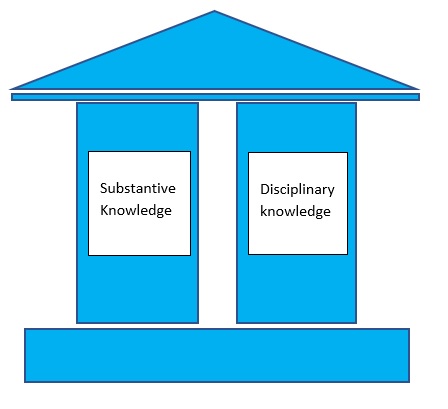
EYFS
Children make observations and know about similarities and differences in relation to places, objects, materials, forces and living things. They talk about what they see, hear and feel. They explore how things work and the world around them through hands on experiences and talk about this process.
In the EYFS, the characteristics of effective learning from the Statutory Framework for the Early Years Foundation Stage are the foundations on which the working scientifically skills build in Key Stage 1.
- show curiosity and ask questions
- make observations using their senses and simple equipment
- make direct comparisons
- record their observations
- use their observations to help them to answer their questions
- talk about what they are doing and have found out
- identify, sort and group.
Key Stage 1
The principal focus of science teaching in key stage 1 is to:
- Enable pupils to experience and observe phenomena, looking more closely at the natural and humanly constructed world around them.
- Encourage them to be curious and ask questions about what they notice.
- Help them to develop their understanding of scientific ideas by using different types of scientific enquiry to answer questions, including observing changes over a period of time, noticing patterns, grouping and classifying things, carrying out simple comparative tests, and finding things out using secondary sources of information.
- Allow pupils to use simple scientific language to talk about what they have found out and communicate their ideas to a range of audiences in a variety of ways.
Key Stage 2
The principal focus of science teaching in lower key stage 2 is to:
- Enable pupils to broaden their scientific view of the world around them. They should do this through exploring, talking about, testing and developing ideas about everyday phenomena and the relationships between living things and familiar environments, and by beginning to develop their ideas about functions, relationships and interactions.
- Allow opportunities for pupils to ask questions about what they observe and make some decisions about which types of scientific enquiry are likely to be the best ways of answering them, including observing changes over time, noticing patterns, grouping and classifying things, carrying out simple comparative and fair tests and finding things out using secondary sources of information.
- Encourage pupils to draw simple conclusions and use some scientific language, first, to talk about and, later, to write about what they have found out.
The principal focus of science teaching in upper key stage 2 is to:
- Enable pupils to develop a deeper understanding of a wide range of scientific ideas. They should do this through exploring and talking about their ideas; asking their own questions about scientific phenomena; and analysing functions, relationships and interactions more systematically.
- Provide pupils with opportunities to encounter more abstract ideas and begin to recognise how these ideas help them to understand and predict how the world operates.
- Enable pupils to begin to recognise that scientific ideas change and develop over time.
- Allow pupils to select the most appropriate ways to answer science questions using different types of scientific enquiry, including observing changes over different periods of time, noticing patterns, grouping and classifying things, carrying out comparative and fair tests and finding things out using a wide range of secondary sources of information.
Ensure pupils draw conclusions based on their data and observations, use evidence to justify their ideas, and use their scientific knowledge and understanding to explain their findings.
Science Overview Substantive Knowledge
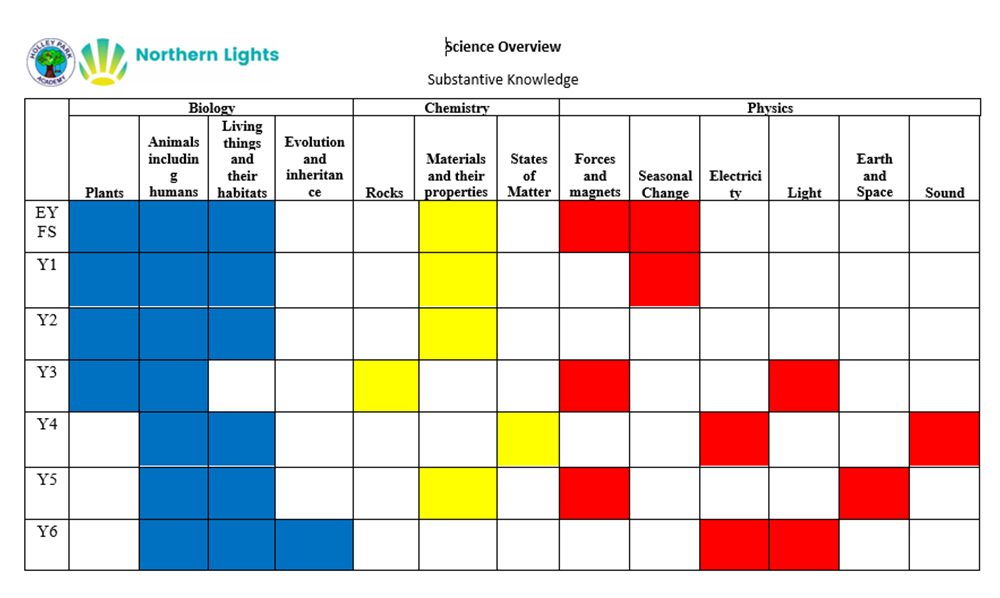 Progression in Disciplinary Knowledge
Progression in Disciplinary Knowledge
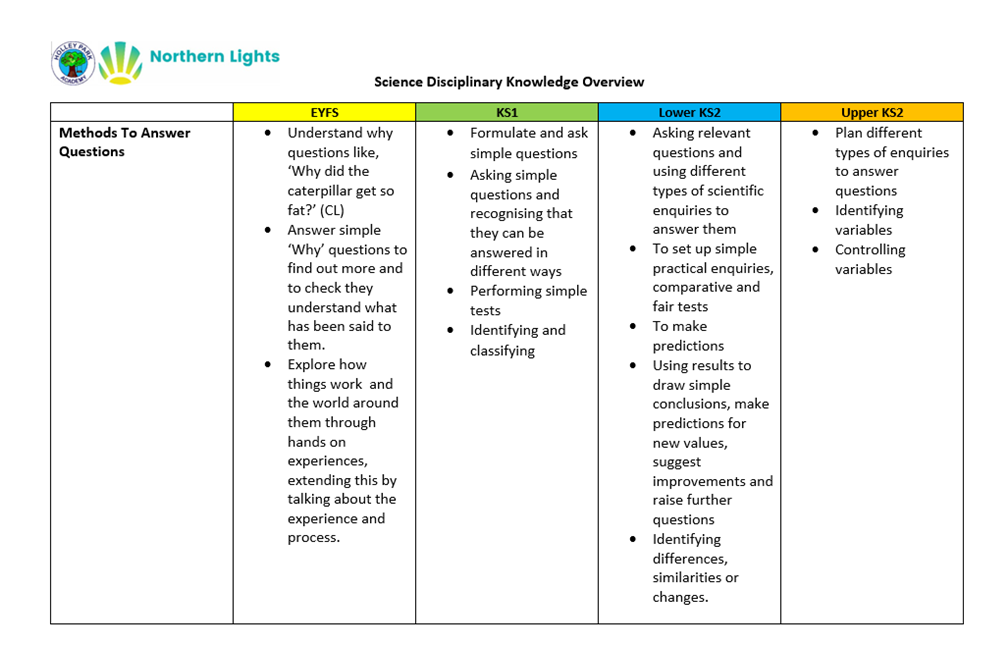
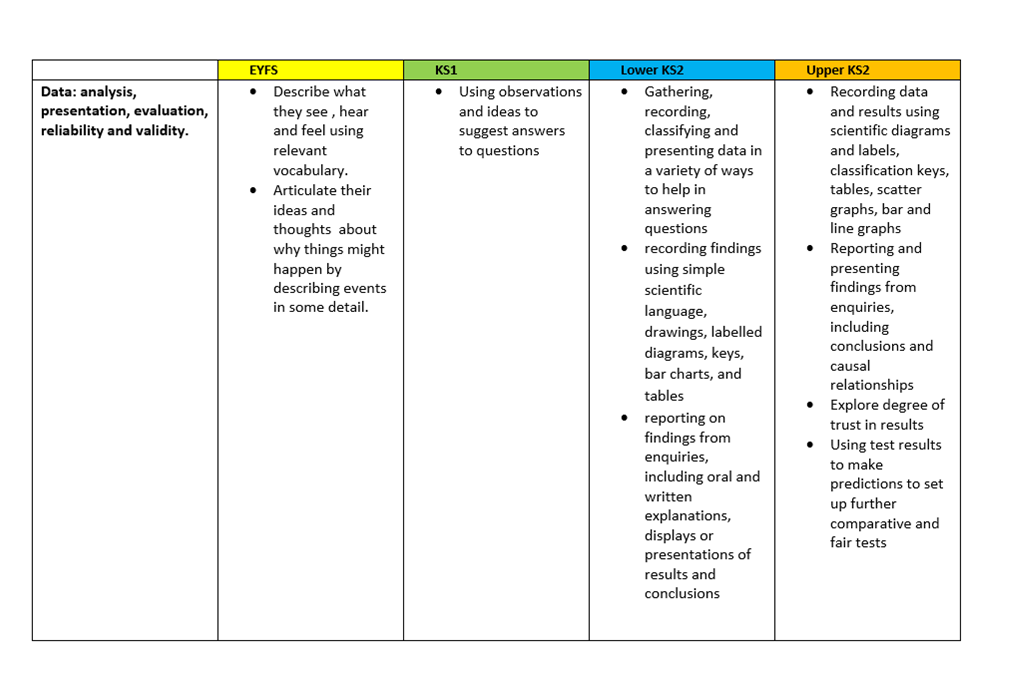
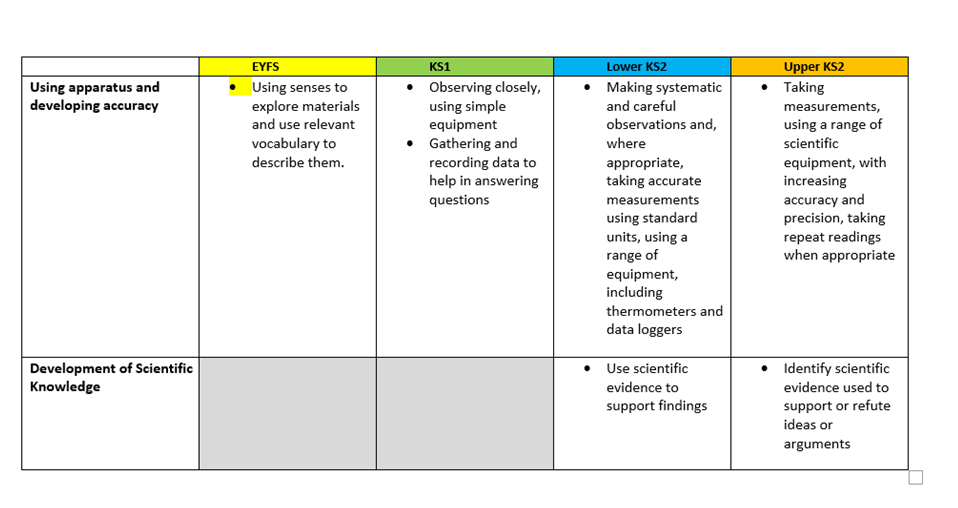
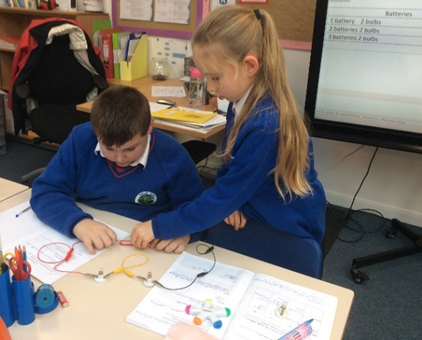
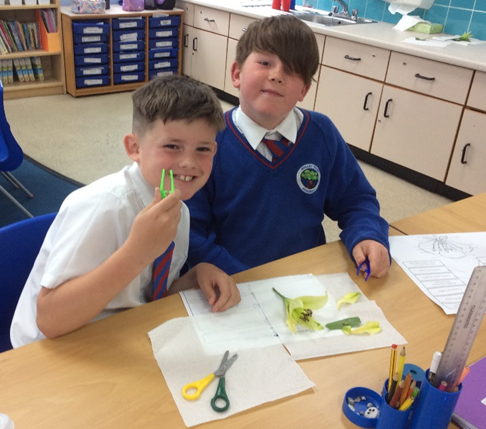
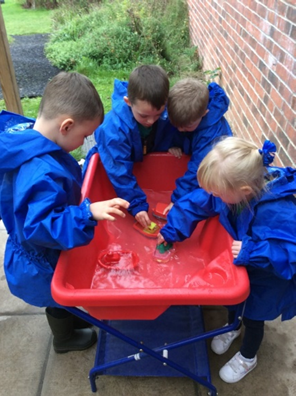
SEND
Holley Park Academy promotes a curriculum that puts all pupils, regardless of their needs, at the heart of what we do. By building mutual respect, we accept others for their differences believing that everyone is special and everyone has something to offer. Our inclusive and enriching curriculum, written for all children, provides pupils with meaningful and aspirational experiences as well as promoting personal growth for life-long learning. When the curriculum needs adapting, to suit the needs of individual children, appropriate modifications are made by the class teacher with support of the SENDCo and the Curriculum Subject Lead.
Cultural Capital
Children at Holley Park Academy take part in Science Week each year to fully engage and excite them about science. The theme varies each year and is planned to develop a whole school focus linked to science.
Children in Year 5/6 can take part in the John Muir Award, which is linked to topics such as animals including humans, using the outdoors and health and well-being.
We enhance our curriculum with local educational visits and workshops to places such as the Discovery Museum, Planetarium and Local Wildlife Centres.
Reading in Science
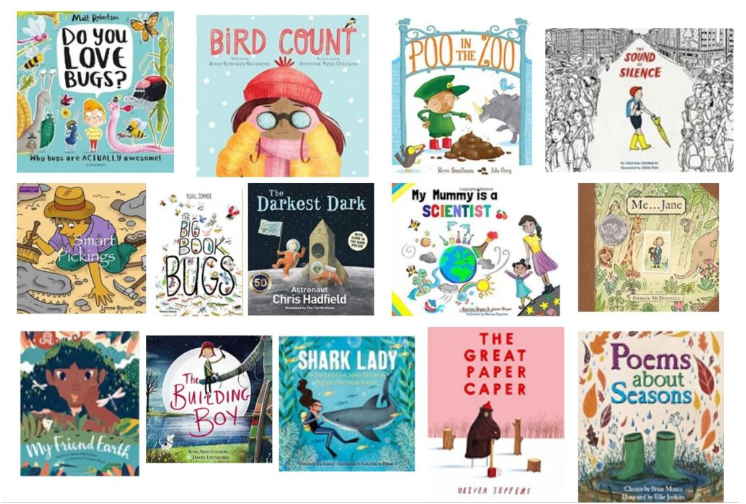
Useful Links
OAK National Academy – Oak Academy – https://www.thenational.academy/?gclid=EAIaIQobChMIgIvqk7PE-gIVFOvtCh0yigEXEAAYASAAEgJNe_D_BwE
Stemettes (Girls in Science) – https://stemettes.org/
BBC Bitesize Science – https://www.bbc.co.uk/bitesize/subjects/z7nygk7
Science Boot Camp for Upper Key Stage 2 https://www.yearsix.co.uk/science-boot-camp/
Science Museum – https://www.sciencemuseum.org.uk/home
Science Experiments you can try at home- https://www.goodhousekeeping.com/life/parenting/g32176446/science-experiments-for-kids/
British Space Agency – https://www.gov.uk/government/organisations/uk-space-agency
Should you wish to know more about the science curriculum at Holley Park Academy, please contact the science Subject Lead via the school office.
